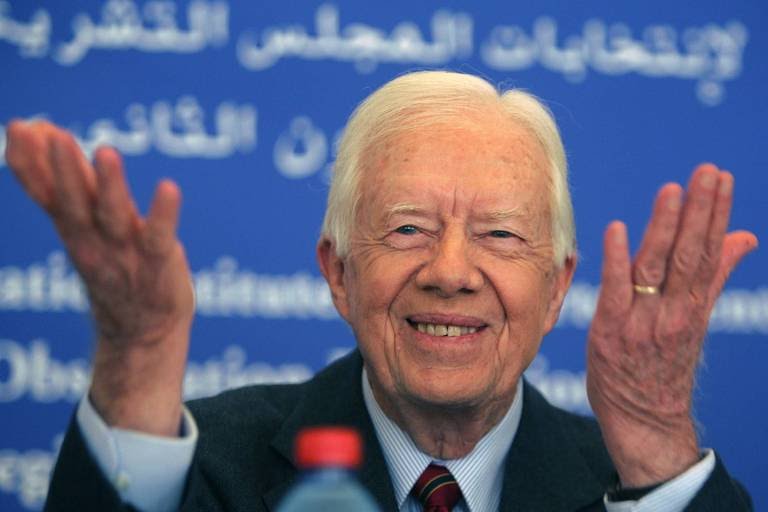
Published 12/31/2024 14:20 | Edited 12/31/2024 18:04
The death of former president Jimmy Carter, at the age of 100, this Sunday (29), reignited debates about his role in American politics and in the world. Widely celebrated by the mainstream press and world leaders for his humanitarian work and defense of human rights, Carter was also a milestone in the repositioning of the Democratic Party and the conservative shift that has shaped the US economy and foreign policy in recent decades.
While his presidency (1977-1981) is often remembered for the Camp David Accords and his stance towards South American dictatorships, a more critical analysis reveals his contribution to the consolidation of neoliberalism and the advancement of North American imperialism.
Carter represented a definitive break with the reformist tradition of the Democratic Party, which went back to Franklin Roosevelt’s New Deal. He ushered in a cycle of fiscal austerity, economic deregulation, and labor repression that would pave the way for Ronald Reagan’s policies in the 1980s.
Economic policy and labor repression
One of the milestones of the Carter administration was the appointment of Paul Volcker to the presidency of the Federal Reserve in 1979. Volcker was known for implementing the so-called economic “shock therapy”, drastically raising interest rates to contain inflation, which generated a recession with rising unemployment. This policy weakened the bargaining power of unions and opened space for wage cuts and precarious work.
Carter also began the deregulation of strategic sectors, such as aviation, road transport and rail, measures that ended up undermining the union bases. The Highway Transportation Act of 1980, signed into law by Carter, allowed companies to replace union drivers with independent contractors, marking a significant blow to union organizing in the industry.
His stance toward workers was evident during the 1978 coal miners’ strike, when more than 160,000 miners defied a return-to-work order under the Taft-Hartley Act. Although Carter mobilized the National Guard, he was unable to force workers to concede, which highlighted union resilience but also workers’ growing alienation from the Democratic Party.
Foreign policy and militarism
In the international field, Carter promoted a policy ostensibly centered on human rights, but which, in practice, prioritized US strategic interests. Under the guidance of Zbigniew Brzezinski, National Security Advisor, Carter strengthened the cold war against the Soviet Union, financing Islamic guerrillas in Afghanistan, which would result in the rise of the Taliban and Al-Qaeda.
His administration also consolidated the “Carter Doctrine”, which defined control of oil reserves in the Middle East as a matter of national security. This policy would justify military interventions in the region, culminating in later wars, such as the invasion of Iraq in 2003.
At the same time, Carter bowed to pressure from allied dictators such as the Shah of Iran, whom he described as leading an “island of stability” in the Middle East. Ironically, this alliance fell apart with the 1979 Iranian Revolution, which overthrew the authoritarian regime and exposed the contradictions of human rights discourse.
Furthermore, Volcker’s aggressive monetary policy not only impacted workers and unions in the US, but also put enormous pressure on developing economies, particularly in Latin America. The increase in international interest rates increased the costs of external debts, increasing the economic dependence of these countries on the USA. This strategy consolidated American economic hegemony, even at the expense of social and financial crises in peripheral nations.
Carter’s legacy in American politics
Jimmy Carter is often presented as a “peacemaker” or a symbol of ethics in politics, but his presidency was a turning point for the American working class. His policies paved the way for the neoliberalism that would consolidate under Reagan, marking the end of an era of social achievements and the beginning of an offensive against workers’ rights.
His government exemplifies how the Democratic Party also played an active role in advancing neoliberal capitalism, dismantling labor protections and promoting austerity policies. Carter’s memory, therefore, must be contextualized within the ongoing bipartisan effort to prioritize the interests of capital over the needs of the working class.
Source: vermelho.org.br

